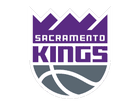
Timberwolves warming up tonight in “Stand with Minnesota” shirts pic.twitter.com/TGzTGUgkJs
— Chris Hine (@ChristopherHine) January 30, 2026

Marc J. Spears: Statement on Behalf of the Minnesota Timberwolves Players.
Statement on Behalf of the Minnesota Timberwolves Players. pic.twitter.com/MBo9IEGm30
— Marc J. Spears (@MarcJSpears) January 30, 2026

The Minnesota Fastbreak Foundation, the non-profit arm of the Timberwolves and Lynx, has announced plans to provide $200,000 in funding to local organizations, including $150,000 in immediate support for trusted partners helping those impacted during this unprecedented and difficult time in our community. The initial grants will be awarded to Boys & Girls Clubs of the Twin Cities, Greater Twin Cities United Way and Second Harvest Heartland. Each organization will receive $50,000 to distribute aid to the areas of our communities facing the greatest need. Following this round of grants, the foundation’s board will award two additional contributions totaling $50,000 to non-profits providing critical support in the community.

“At our core, the Timberwolves and the Lynx are about bringing people together through the power of sports,” said Timberwolves and Lynx CEO Matthew Caldwell. “At a time when unity and compassion matter more than ever in Minnesota, supporting nonprofits that are delivering critical resources is one way we stand with our neighbors in need and strengthen our community.” The foundation’s board has carefully reviewed and approved these grants to ensure funds support programs delivering measurable impact.
Advertisement

Timberwolves-Warriors game in Minneapolis postponed to Sunday
Shams Charania: The Timberwolves-Warriors game in Minneapolis has been postponed by the NBA, sources tell ESPN, in wake of a man shot and killed Saturday in a confrontation with federal agents in the city. It's the second shooting there in a week, third this month, involving a federal officer.
The following has been released by the NBA. pic.twitter.com/zETGHzpYX5
— NBA Communications (@NBAPR) January 24, 2026
Hulu releases documentary on MLK Jr. and Obama’s basketball ties, co-produced by Khris Middleton
It’s common knowledge that President Barack Obama is a basketball fanatic with a nice jumper. But did you know that late Civil Rights leader Martin Luther King Jr., could hoop, too? The story of how MLK and Obama used basketball to make connections is revealed in “Hoops, Hopes & Dreams,” a documentary debuting on Hulu today on Martin Luther King Jr. Day.
“I liked everything about it,” Washington Wizards forward Khris Middleton told Andscape after the film was shown to his teammates at the National Museum of African American History and Culture on Jan. 8. “First of all, its basketball. Two of the most important people of our lifetime, Dr. Martin Luther King Jr. and Barack Obama are playing basketball and also using basketball as a vehicle to encourage people to come out and support their movements, what they were doing and support what they were fighting for. When I watched it at first, I was like, ‘There is no way Martin Luther King was a hooper.’ All hoopers love hoopers. We’ve seen the documentation and videos of Barack playing. But to know that Dr. King played is pretty cool.”
Middleton said it was a no-brainer to join as a producer after being invited by Alexys Feaster. Middleton said he has seen the movie five times and gave Feaster feedback after viewing it. His sister, Brittney, also was one of the producers. “Alexis brought this to my attention and I did some research on it,” Middleton said. “We sat and talked about it and I decided this was an easy, ‘Yes,’ with a lot of the things I’ve been involved in the past and was currently. I thought it was a perfect first film to produce.”

Golden State Warriors coach Steve Kerr made another passionate plea for more gun control restrictions in the wake of Saturday’s shooting at Brown University. Kerr, unprompted, spoke for three minutes as he finished up his pregame news conference ahead of Sunday’s game against the Portland Trail Blazers.
Advertisement

“I do want to say one thing,” Kerr began. “I was sitting here seven years ago after the Parkland shooting. We were in Portland that day, and I remember turning on the news and seeing the news. With what happened last night at Brown, it’s just a reminder to me that these shootings continue to happen, and there is something we can do about them. The loss that all of the people involved (Saturday) night, the loss that they’re feeling, is exactly the same loss as all the Parkland families, and every other mass shooting.”

“The vast majority of gun owners in this country are responsible, law-abiding citizens,” Kerr continued. “They have every right to own a gun. But it’s on us to decide if we actually want to take action as a country, as citizens. We know, we know there are common-sense measures we can take that will save people’s lives. And I just want people out there — it doesn’t matter if you’re Democrat or Republican, or gun owner, non-gun owner — I just want people thinking, ‘What if it were my child?’ What if it were my brother or sister? Would you be willing to stand up to your representatives and say, ‘You know what? Enough. I’m not gonna vote for you unless you are going to stand up for gun violence prevention through common sense laws that the vast majority of Americans agree on.'”

The Sacramento Kings are celebrating Native American Heritage in November by becoming one of the few NBA teams to have a land acknowledgement at games. On Monday, the Shingle Springs Band of Miwok Indians announced a partnership with the Kings. As part of the partnership, a video will play at games that will talk about the ancestral land that the Golden 1 Center and Sacramento now occupy.
In the process of disagreeing with a recent Washington Post column arguing for Bill Russell as the best player in NBA history because of what he faced off the court, Kendrick Perkins took things a step further on the latest episode of Road Trippin’. Rather than simply argue that off-court challenges should not factor into a player’s greatness or that someone like Michael Jordan still accomplished enough on the court to supersede Russell’s historic racial advocacy, Perkins took Russell down a peg by comparing his strength in the face of racism to modern players dealing with haters on social media.
